This post contains affiliate links from which I may receive a small commission, at no extra cost to you. In no way does this affect my opinion or the information I provide on the product. Please read my disclaimer for more info.
Ever heard of the food matrix effect?
Probably not, but the concept might sound familiar.
Do you know why supplements don’t work as well as eating the vitamins from the whole food?
Or why the fructose in fruit is healthy while the one in soda is not?
All of the different macro and micronutrients of a food interact and come together to make its matrix. Each food has its unique matrix, and therefore its own specific effect on your body.
Hence, a food product is more than the sum of its nutrients.
So, what does this mean?
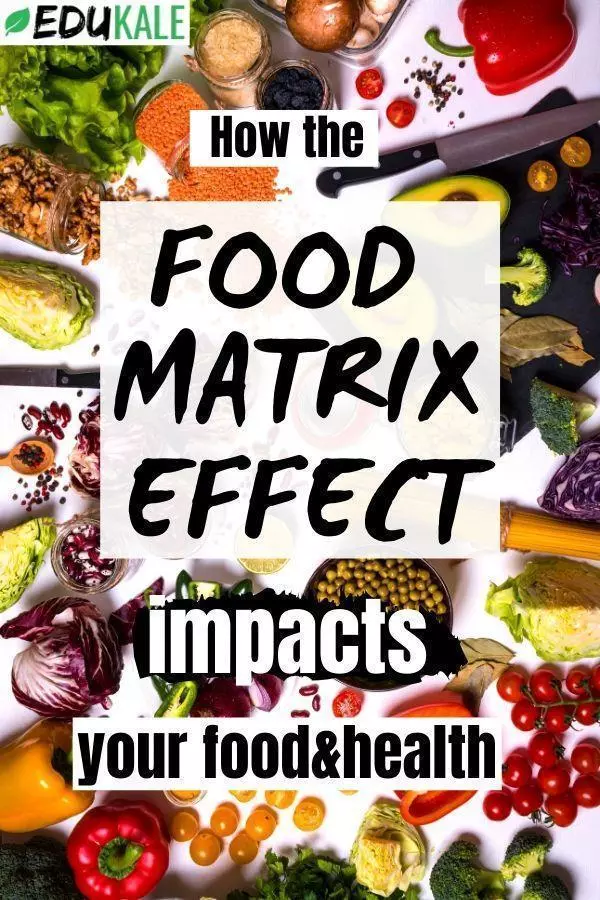
What is the food matrix?
A food is made up of different components: nutrients, vitamins, minerals, water, fiber, polyphenols…the list goes on. They all interact with each other physically and chemically, giving specific properties to the food.
These interactions determine the food’s health benefits and physiological effects.
This complex and unique structure is the food matrix. Matrices take on different forms in different foods: fibrous, liquid, crumbly, gel-like…
If you isolate each individual compound of the food, they will behave differently than inside the whole food. Basically, a food is more than the sum of its nutrients.
How does the food matrix modulate a food’s effect?
A food’s matrix affects the availability of its nutrients and calories [1]. To start with, it plays a role in our satiety: eating an orange will be more filling than drinking its juice.
It also influences the digestion of a food product and the absorption of its nutrients. Some foods may contain nutrients that your body won’t have access to. Others may give you more energy than what is written on the label.
While these nutritional labels are an important tool, you have to keep in mind that they aren’t exhaustive. Two food products can have similar labeling but different effects on your body.
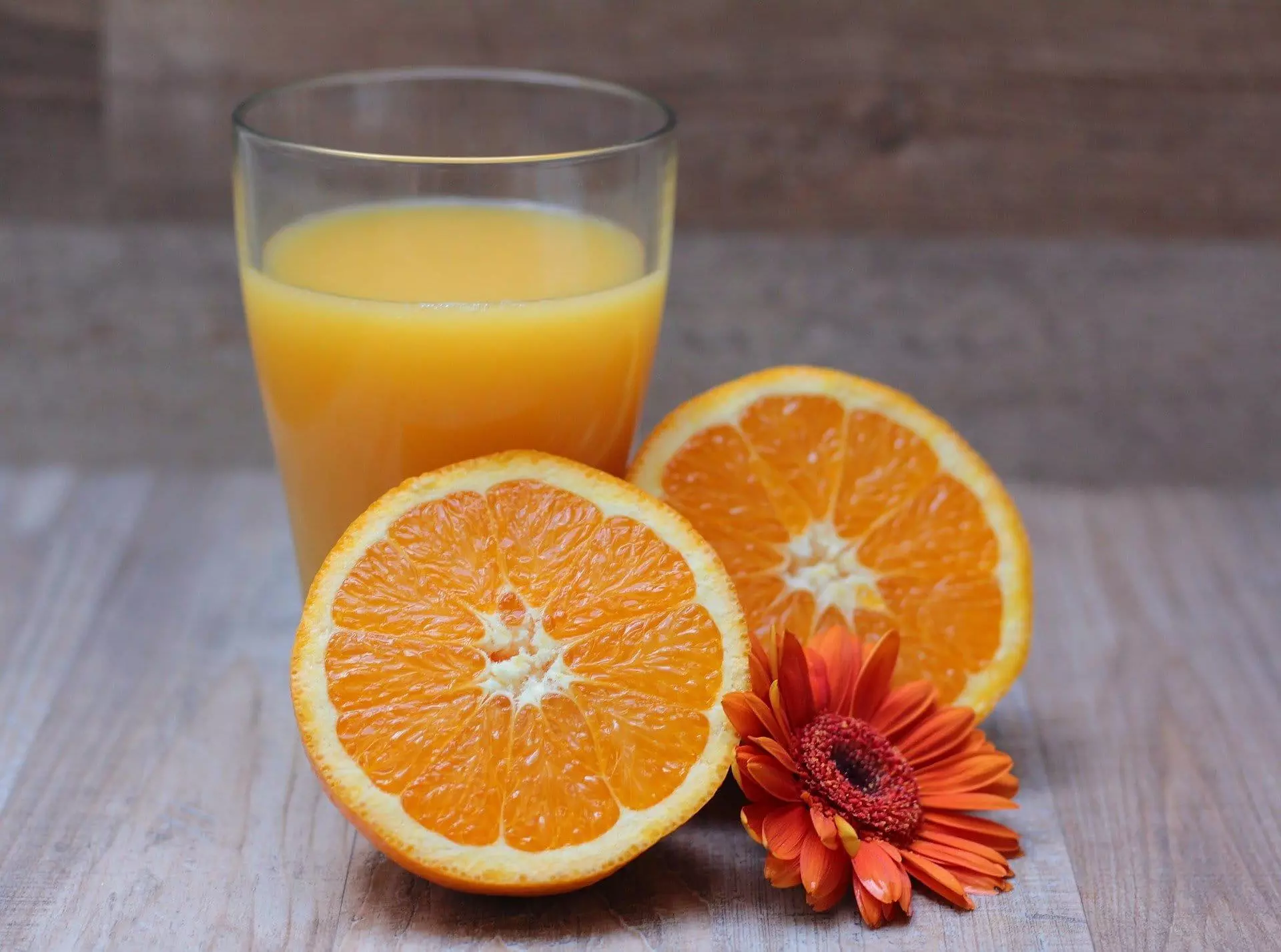
A food is more than its label
The calories you see on a food label aren’t always what you get.
Indeed, a small study showed that the actual energy content people got from almonds was different than the one written on the label. By controlling what the individuals ate and rejected (feces and urine), it was shown that they were getting “only” 129 calories per serving of almonds, while the expected energy content was 168-170 calories.
The systems used to calculate a food’s energy content aren’t always extremely accurate. [2] Again, a food is more than the sum of everything listed on its label.
This is one of the reasons why I’m not a big fan of calorie counting for weight loss (though I fully acknowledge its importance for some). You can’t be entirely sure of the energy content you are getting.
So does this mean that you shouldn’t pay attention to a nutritional label?
No, of course not: it still gives very valuable information. But don’t stop there. A food could be super processed and still have good ingredients on the label. You need to take everything into account.
Whole foods vs processed foods
When you eat whole foods, your body takes time to break down the food’s structure and release the nutrients. They are delivered slowly to your body and sometimes, to a lesser degree.
Eating a whole apple for instance, takes some significant biting and chewing before you can get to the end of it. Very different from the 3 seconds it takes to drink a glass of apple juice.
The fiber contained in the apple will also slow down the release of sugar and the digestion process. In addition, fiber takes up room in your stomach.
For all of these reasons, eating an apple will make you fuller for longer (and I’m not even talking about the diminished vitamin content in the juice.) When you eat apple sauce, things are somewhere in the middle.
In general, the more processed the food, the more messed up the matrix. Cooking, mixing, juicing, and even cutting a food all alter its matrix as well. This can be both good and bad, however.
For example, soaking and cooking beans before eating them alters their matrix, but also gets rid of antinutrients and makes the healthy nutrients accessible. On the other hand, eating refined carbs instead of whole grains provide you with accessible carbs that will get absorbed in no time.
Foods vs supplements
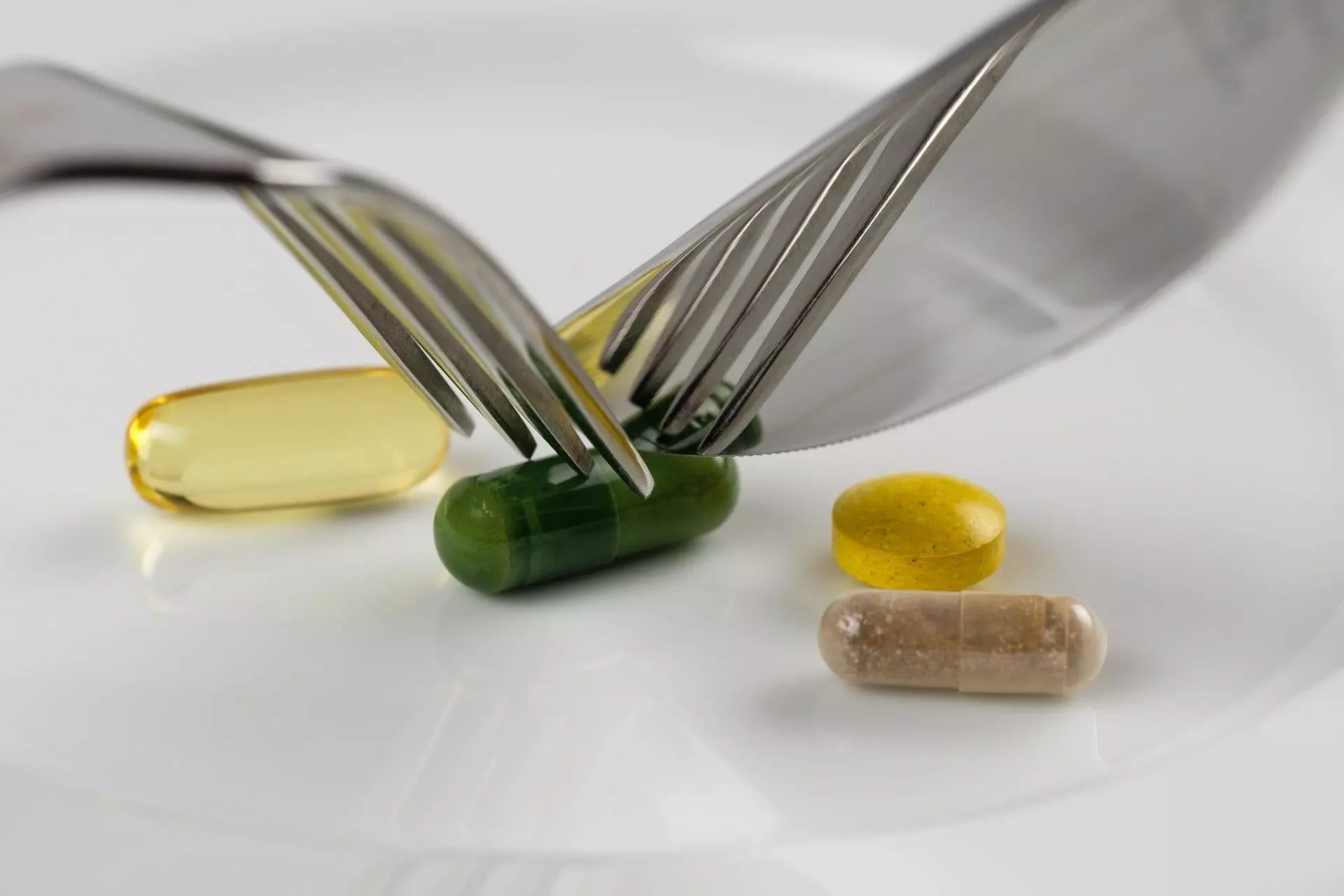
The food matrix effect is also applied to supplements.
A whole food contains nutrients in a complex, natural form, while a pill concentrates nutrients into a processed form. In theory, a multivitamin would meet your vitamin needs. But in reality, these vitamins aren’t absorbed as efficiently and don’t always have the desired effect.
For instance, beta-carotene, an antioxidant found in carrots, sweet potatoes, red pepper, or apricots, has many great health benefits. However, beta-carotene in supplement form may actually have adverse effects. Indeed, a number of studies found that they could increase the risk of lung cancer among smokers, for instance.
This doesn’t mean that you should ban supplements from your life: they can be helpful in some cases. However, it’s important to be aware of their potential effects and to discuss this with a doctor. In addition, supplementing shouldn’t be your main health strategy: focus on eating whole, healthy foods first.
So what should you do with this information?
You may be wondering how to implement this food matrix knowledge in your daily life.
First of all, simply being aware of it is already a big step. Know that the food you eat is more than the sum of its nutrients. Realize that labels, while very useful, don’t give you the full picture.
It’s important to focus on eating whole, unrefined foods instead of processed foods as much as possible. This will maximize the benefits of the food matrix.
The more processing a food has been through before you process it yourself, the more limited its benefits will be.
Finally, try to get all of your nutrients through food rather than from supplements. This is the best way to get the benefits without the risks.
Of course, supplements can be helpful and even crucial in some cases, such as B12 for vegans for instance. But make sure to discuss supplementing with your doctor to find out the best option for you.
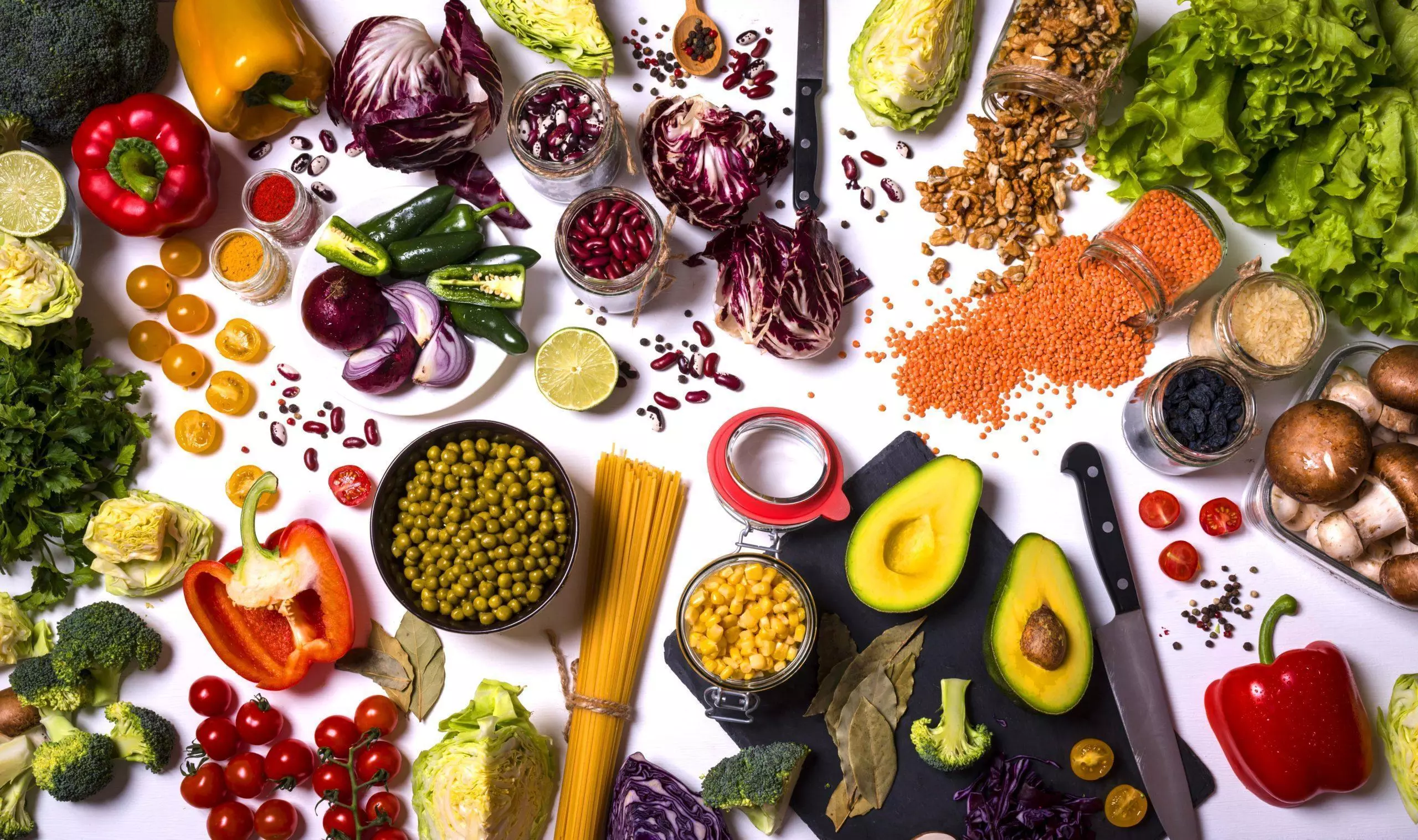
The food matrix in conclusion
A food has a matrix made up of different components that all interact together.
The food matrix effect means that different foods have different benefits and physiological effects, even if they seem similar. The more processed the food, the more altered the matrix, and the fewer benefits you will reap.
Focus on choosing whole, unprocessed foods instead of refined foods, and use supplements only if necessary.
-Lucie
If you’re interested in nutrition, its impact on our health, and the science behind it, you should definitely read How Not to Die. In this book, Doctor Michael Greger, founder of Nutrition Facts, examines the top causes of death in America and explains how your diet can prevent— and in some cases even reverse— them. His advice is all backed by science and he writes in a very clear and entertaining way. This book isn’t a list of what you already know. It will teach you the keys to living a long healthy life, in a simple and practical way, and without spending fortunes on supplements and pills!
PLUS if you want to take it a step further, you can check out the How Not to Die Cookbook to implement the advice easily!

Welcome!
I'm Lucie, the nutritionist behind Edukale! If you'd like to learn more about me, click HERE !
Read More!
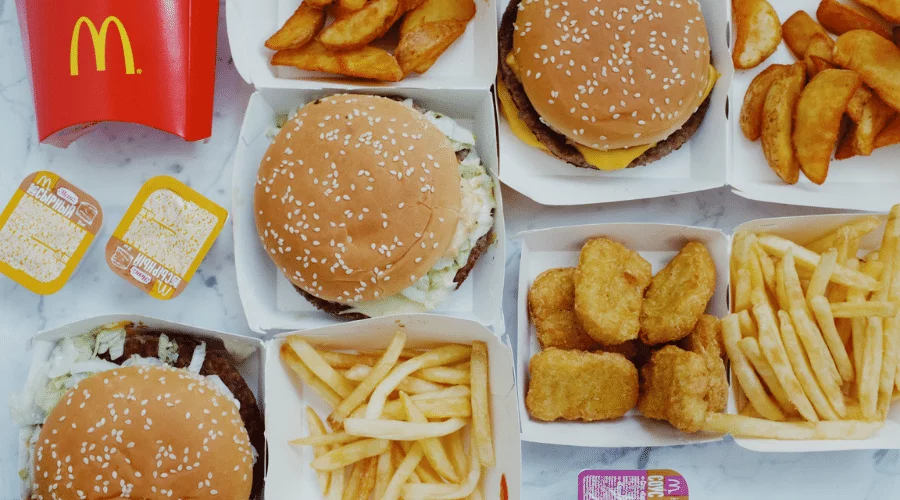
The truth about processed foods
You’ve probably heard that it’s best to reduce your intake of “processed foods” for healthy eating, and increase your intake of whole foods for optimal health.

The Best Foods to Fight Fatigue
Do you feel like you’re always tired and that you need multiple coffees to get you through the day?
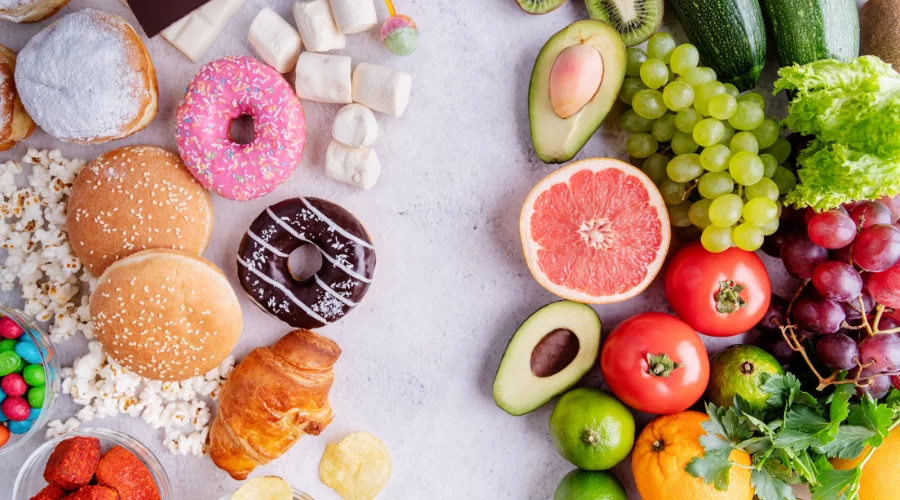
how to find the balance between healthy eating and dieting
It can be hard to find the right balance between healthy eating and dieting without becoming obsessed with food.
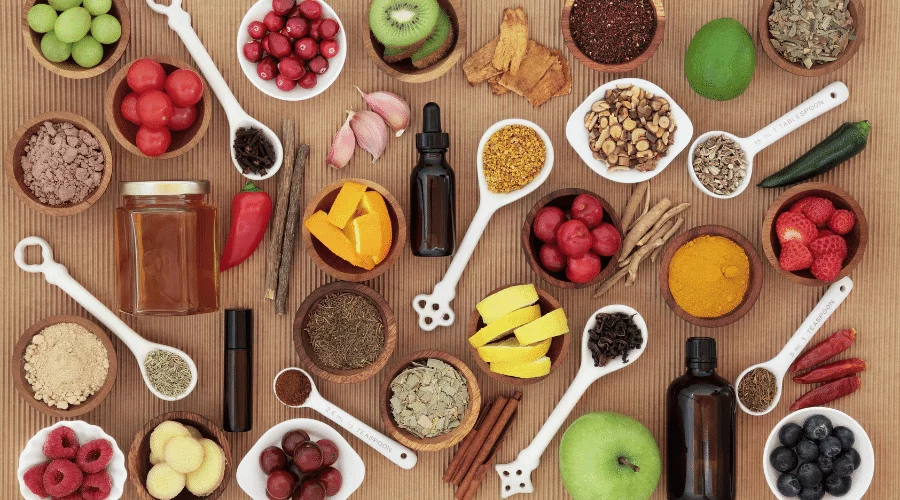
Can you use food as medicine?
“Let food be thy medicine, and let medicine be thy food.” We’re all familiar with this quote attributed to Hippocrates, and we all know the huge impact our food choices have on our health.

How to finally stop overeating for good!
Overeating means eating past your body’s actual needs, and it can be rather uncomfortable.
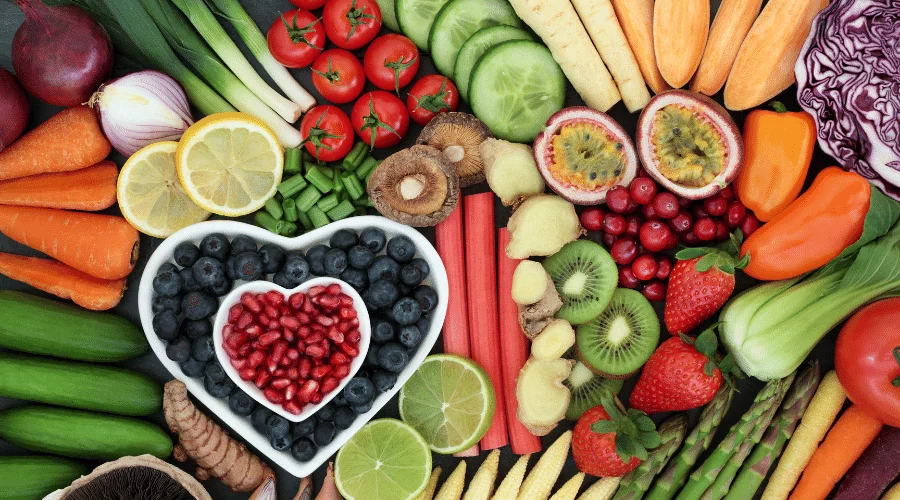
The anti-inflammatory diet: get rid of inflammation
You’ve certainly heard about the anti-inflammatory diet before and the benefits it could have on your body.
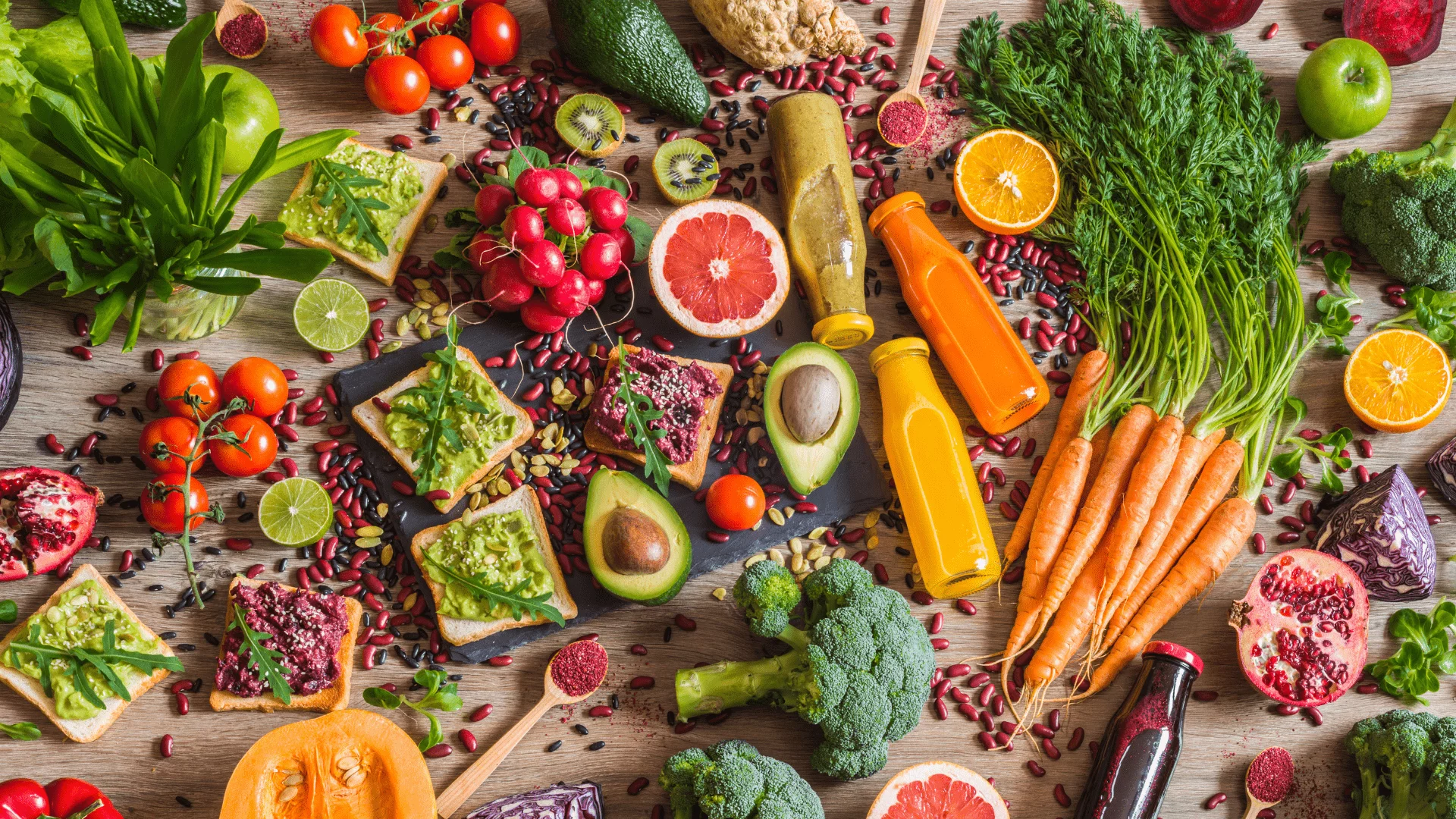
The complete beginner’s guide to veganism
Even though you can absolutely be healthy on a diet that includes animal products, the scientific consensus shows that increasing your consumption of plant-based foods is what is best for health.

Physical vs emotional hunger—learn the difference
You may be aware that physical hunger is not the only type of hunger that exists. There are actually two main types of hunger: physical hunger and emotional hunger



Comments are closed.